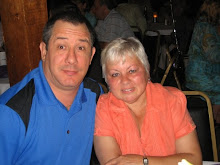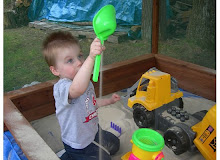Let the pruning begin on your fruit and small trees, that is if you can get to them. This is maple season in New England, where taps are seen in trees, sometimes with pails hanging from them. I understand that the New England Indians were the first ones to introduce the process of making syrup to early settler's in this area. Pancakes and sausage with syrup was always a staple in these parts, along with hot cereals and eggs of course.
Early farms would have roosters courting the yards along with big fat hens and some ready for the pot, on a fine cold New England noon time meal. Larger meals were consumed during the light and not by candlelight in the evening as people erroneously believe. Hence, the term supper was used instead of dinner. In between the noon meal and supper, was tea time. This is when the ladies would get together with a neighbor and sip tea and ate cakes, which looked like fat cookies, and do their needle work and knitting.
Today, I happened upon some sheep penned and grazing on the provided feed, when I noticed two small lambs. They came running to me, one doing some kind of cute dance in the process. Of the two, one had small antlers the other didn't. I wish that I could pick them up and it seemed that they wanted me to. I got close enough to notice the big blue eyes and white lashes. Like my baby grandson, they kept their eye on me as I left. I so wished that I had my grandchildren there to see how small and sweet they were.
Every one's talking about growing their own vegetables this year. One man told me he still had "keeper's" squash in his kitchen about two and a half years old. Wow, that is amazing. Some people still have root cellars, in which they place their produce on beds of sand to feed them without refrigeration, all winter. This part of the country was known for stews made from the vegetables grown containing: red onions, carrots, parsnip, and potatoes. They would use butter that they churned, and cut up vegetables which would be fried in the pot, adding dried seasonings and water, once precooked and left to stew until completely softened. Salt was always used as a preservative.
I think that is why we use so much salt, as it was needed and utilized by cooks, who used older recipes. Now, we can cut back on consumption, due to the advent of refrigeration.
I spoke with a man who is completely off the grid, so to speak. His lunch today was prepared last night on his wooden stove, from the vegetables that he grows in his own garden. He is consumed with all trade secrets, that come from his grandfather and generations before on how to survive in good "New England." He even has a remedy for slugs and other rodent loving critters who want in on a share of things.
Living on a farm then and now, is hard work. Cutting your own wood for the fire, and he tells me he has no TV, nor time for such. Just what does he do in his spare time? If he has any, I couldn't tell you. His lunch consisted of a jar of assorted vegetables, like a stew, and two hard-boiled eggs. He had a long thick beard, and appeared healthy, as he was whittling a wood carving, something you rarely see today accept if you are in the pinewood derby.
Just a couple of hundred years ago life was so different. Homes didn't have bathrooms, not even one. Children were fitted in their long johns for the winter, complete with the hatch in the back with two buttons. How they got their water was from a huge pot burning in the fireplace, that was scooped out as needed. Water was pumped from wells. It didn't have chemicals added to it and it was used wisely.
Shoes were changed at the door, and more comfortable ones were worn in the house. You always brought a change of shoes if you visited, placing knitted ones on your feet. Sometimes, these were provided by the hostess. They didn't have phones or Internet, and spoke to each other eye to eye. There was a whole lot of caring going on as they relied on each other for their needs big and small. Oh it was hard work, but rewarding, and some days, like those bad weather days, you simply stayed home. What you put into it, you got out of it. Recycling was a way of life, and hand-me-downs were good enough to pass down several generations, by just changing ribbon or lining. Things were made to last because they had too.
That is when you knew who your neighbor was.
Keto Simple
6 years ago



























No comments:
Post a Comment